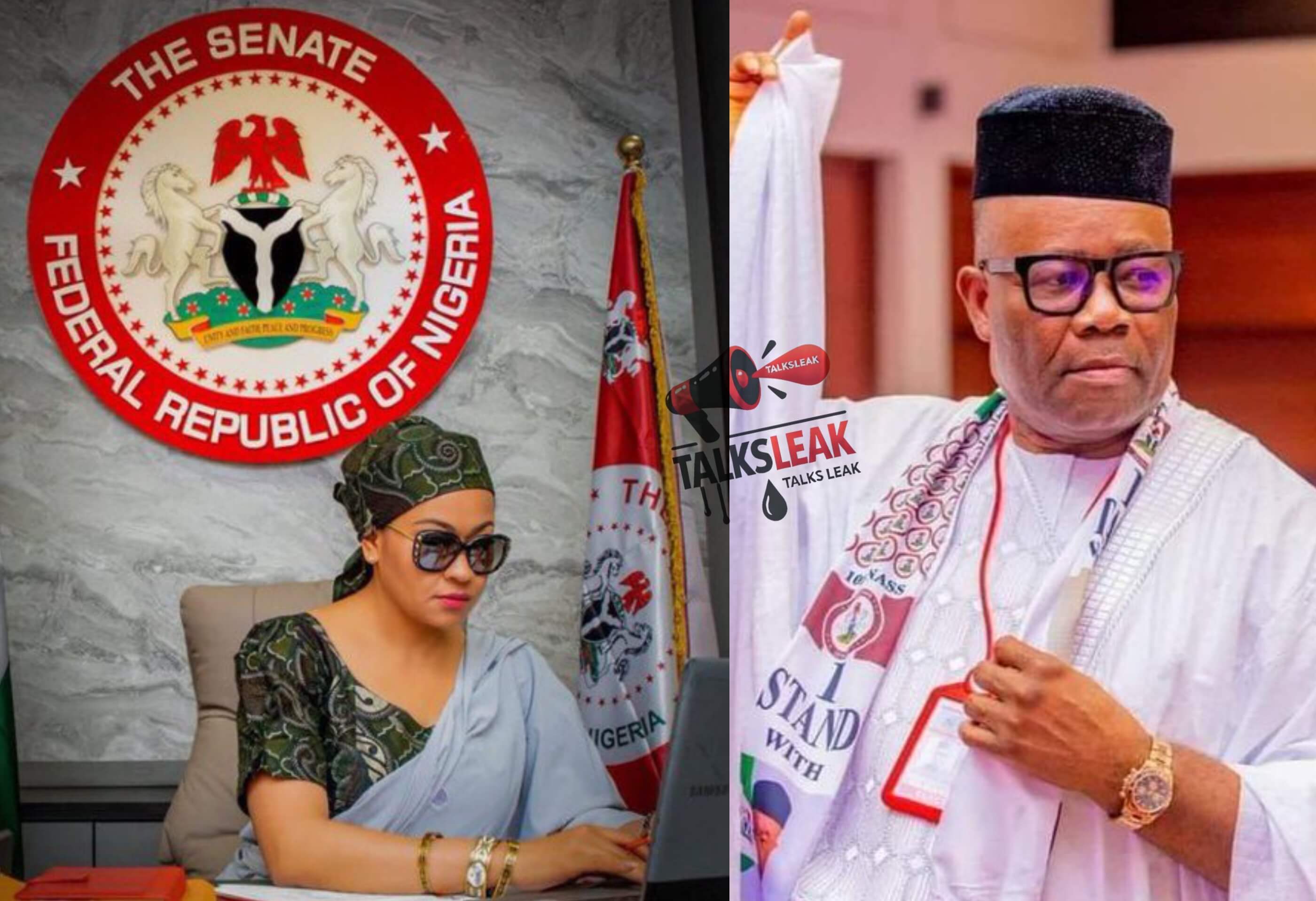In a shocking turn of events, suspended Senator Natasha Akpoti-Uduaghan has leveled serious allegations against top political figures in Kogi State, accusing them of plotting to assassinate her.
These explosive claims have sent shockwaves across the political landscape, igniting a firestorm of reactions, and stirring up tensions in a state already known for its political volatility.
The Allegations: A Dangerous Conspiracy?
Senator Natasha Akpoti-Uduaghan, who represents Kogi Central Senatorial District, made these startling allegations during a homecoming rally in her hometown.
Despite a government-imposed ban on political gatherings, Akpoti-Uduaghan boldly addressed her supporters, revealing a purported assassination plot against her life.
According to the senator, Senate President Godswill Akpabio, Kogi State Governor Usman Ododo, and former Governor Yahaya Bello are involved in a lethal conspiracy against her.
Akpoti-Uduaghan explained that Akpabio first approached Governor Ododo to initiate her recall from office, citing her widespread popularity among Kogi’s electorate as the primary obstacle.
When this request was denied, Akpabio allegedly turned to Yahaya Bello, instructing him to arrange her assassination within Kogi, rather than in Abuja.
The plan, according to Akpoti-Uduaghan, was to stage the killing as a community attack to obscure the true nature of the plot.
The Reactions: Denials and Pushback
In response to these shocking claims, the Kogi State government has issued a strong denial, calling the accusations “reckless and malicious.”
Kingsley Fanwo, the Commissioner for Information, condemned Senator Natasha’s remarks, accusing her of deliberately stirring unrest and violating state directives designed to maintain peace and order.
Likewise, Senate President Akpabio’s spokesperson dismissed the allegations, insisting that Akpabio is solely focused on his official duties and will not be distracted by such serious but unfounded claims.
Akpabio’s camp has maintained that there is no truth to Akpoti-Uduaghan’s accusations, stressing the senator’s role in undermining public order.
Political Tensions Escalate in Kogi State
These allegations have further fueled the already intense political tensions in Kogi State. Natasha’s rally, which directly defied the state’s ban on political gatherings, was seen by many as an act of political defiance.
However, the state government has condemned the rally, arguing that it posed a threat to public peace.
Critics, including the Human Rights Writers Association of Nigeria (HURIWA), have slammed the state government and police for using “security concerns” as a pretext to prevent the senator from engaging with her constituency.
HURIWA has called for a thorough investigation into the allegations and demanded the protection of political rights in the state.
Democracy Under Siege?
The gravity of these allegations raises significant concerns about the state of democracy in Nigeria.
In regions like Kogi State, where political rivalries often spiral into dangerous confrontations, figures like Senator Natasha Akpoti-Uduaghan risk their personal safety by challenging the status quo.
These allegations underscore the systemic issues faced by political figures in Nigeria, where power struggles sometimes manifest in violent and covert ways.
As the drama unfolds, the eyes of Nigerians and international observers are on the situation in Kogi.
Will these claims be substantiated? And, more importantly, how will they affect the broader political landscape in the state and the nation?
A Fight for Democracy and Justice
The allegations made by Senator Natasha Akpoti-Uduaghan have sparked a heated debate about political safety, the rule of law, and the strength of Nigeria’s democracy.
Whether or not her claims are proven true, they highlight the deep-rooted political challenges within the country.


